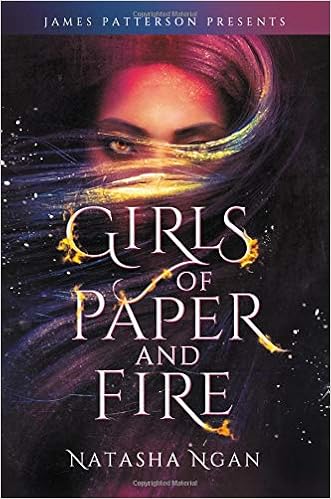
Something I haven't felt for a long time flutters into life in the pit of my belly. Hope.
A glimmer of hope rises in my belly.
Because the answer to her question is easy: none. I have no hope. No hope of being free, no hope of escaping what's to come tonight.
It feels as though I've lost something. That I left something of mine behind in the Night Houses. Something that was keeping me alive. Something like hope.
I know it now with a certainty that has fitted into the lost core at the heart of me, as hard and angular as my hope was soft and shimmering.
I know what it's like to lose your family. To lose your hope.
I like to think there's some good behind even the darkest sins. That death can be warranted if it paves the way for hope.
Just the simplest, most instinctive language of forgiveness. Forgiveness, and hope.
To the world we have built so tirelessly over these past two centuries, with our blood and sweat and tears and hope.
How futile it's been to believe we can defy him with just our love and hope.
It builds my confidence that one day we'll be able to rebel with more than just our bodies and our love. That we will find a way to turn our growing hope and bravery into action.
She smells like home, like happiness an safety and hope and... love.
Love is what gives us hope. What gets us through each day.
...of the way she looks at me right before a kiss, or right after, open and vulnerable and full of hope.
My love for Aoki and even the other girls, and the hope that this can bring all of us freedom.
"I hope you brought some with you?" HE ADDS HOPEFULLY.
Rating: 2.5 stars
Do you ever stare at a word for so long that you start to wonder if it's actually a real word or just a figment of your imagination? The word "hope" appears approximately once every five pages of this book, but I feel like it's been seared into my brain for eternity. The abstract concepts of hope and love and bravery, meaning the fluffy quotes that are unreasonably thrown into the book at the end (or beginning, or middle) of the chapters, is completely overwhelming. I understand they are important motifs in the story, but I wish they were shown more than told (and thrice each chapter at that). The consistency of these abstract quotes cheapens all of them, especially when some of them don't even make sense. I.e.: "I know it now with a certainty that has fitted into the lost core at the heart of me." Like what???
Now let's get past the writing style and into the meat of the story: plot and characters. Overall, Lei was kind of a flat character to me. She did some cool, admirable stuff: submitting to General Yu to save her family, rejecting the Paper Girls tradition in front of all the Paper Girls and their leaders, defying the king to his face. But like, why doesn't she have a personality to go along with her BA attitude? I understood why Lei fell in love with Wren (she was introduced and described consistently as a great character), but I was continuously like "why is Wren with this girl?". There just wasn't a spark in her.
Branching off of that, this is honestly a romance masquerading as a fantasy series, which is a trope that usually does not bother me all that much. But this one didn't work cohesively for me. I didn't see Lei and Wren's relationship as friends advance before they were suddenly in love. I honestly thought that Lei was going to end up with Aoki because of their friendship, and then Lei was like nah I'm into the cool chick who won't talk to anybody. Oooookay...
Now the plot... What's it called when the author purposely makes certain things happen so that other things can happen? Plot conveniences? Lazy writing??? Well this book has it. Why did Wren have to wait for the perfect timing to kill the king? Like why was killing him at a super popular party better timing than when they are alone one random night? And how is the night after Wren, the main operator in this scheme, becomes unavailable the right timing? What does the "right timing" even refer to? Something to do with when Kenzo will be able to sweep in and pick up the pieces of the kingdom to rebuild it as something new... which brings us to the plot of killing the king. How does killing the king change a system of traditions that's been in place over two hundred years? Won't the next in line to the throne just do the same thing? None of this is explained and it's all just a big mess.
So, looking back on it, I had a lot of logistical problems with this book regarding writing style, characters, relationships, plot, etc... But, I still enjoyed the book while I was reading it, strangely enough. All of these critiques are coming to me as I reflect; the aforementioned issues didn't really decrease my active enjoyment (with the exception of the terrible repetition of hope every 10 minutes of reading). I did not appreciate the ending of the book--a cliff hanger that isn't even good, but just aims to force people to read the second one to find out how it really ends. I will probably not be picking up the second book, but honestly I can't say I wouldn't recommend this one to some of my less picky YA fantasy lover friends.
No comments:
Post a Comment